Achieving sustainable development through entrepreneurship and innovation
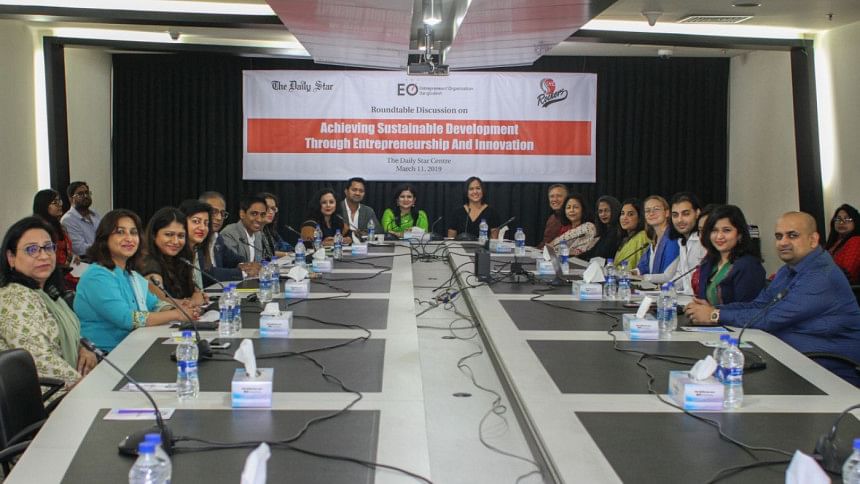
RECOMMENDATIONS
♦ Women's empowerment principles should be embedded in all strategic plans for achieving the SDGs.
♦ Establish a specialised bank geared towards funding women and young entrepreneurs.
♦ A mentorship framework needs to be developed for young entrepreneurs.
♦ Digitisation of business process and optimum utilisation of technologies such as artificial intelligence and machine learning should be ensured.
♦ Create flexible financing opportunities for women entrepreneurs.
♦ Invest in linking innovative products to the mass market for ensuring sustainability.
♦ Invest in creating entrepreneurship in arts and culture and handicrafts.
♦ Emphasise upon vocational training.
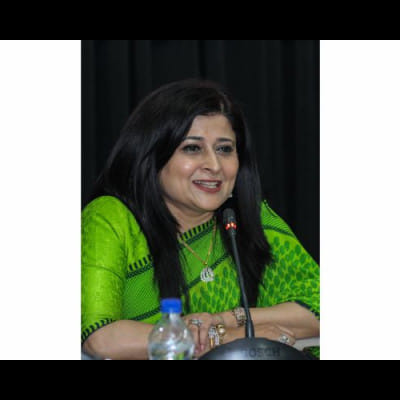
Farzana Chowdhury, President, Entrepreneurs' Organization Bangladesh
My diverse job experiences have helped me to work towards entrepreneurship and women's empowerment. Bangladesh is on the way to becoming a middle-income country, and our purchasing power is increasing. Therefore, we need to involve more women in our businesses. We need to take action to implement the ideas we believe in. EO provides a powerful platform that brings together entrepreneurs who can create meaningful impact under one umbrella.
Without empowering women, we can't achieve the SDGs because half the population of the country is women. When you have women's empowerment principles embedded in your strategic objectives, you give women equal opportunities in terms of training, positioning, and giving them responsibilities. Women need to be engaged in decision-making roles. We have achieved 7 percent GDP growth, and women have played a significant role in this achievement. Yet, their contributions are not recognised. We want women to be more socially and financially independent. An improved livelihood for women will come through their active and true participation in entrepreneurship.

Mahfuz Anam, Editor & Publisher, The Daily Star
There is absolutely no question that women need to be empowered and they need to be given opportunities. Another established fact is that the youth need to be empowered. Can we really create as many jobs, especially for women and the youth, as we need at the moment? Entrepreneurship is the way to go because entrepreneurs not only create employment for themselves but also create jobs for others. We need creative funding. I think the government and financial organisations should have a special window for entrepreneurs. Why don't we establish a special bank geared towards funding young entrepreneurs? I think it can make a huge difference.
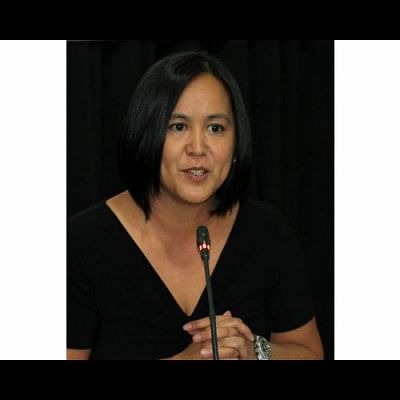
Bubu Andres, Global Chair, Enterepreneurs' Organization
Sustainable development is a holistic approach in order to ensure the wellbeing of the people of the community. There are 17 SDGs and 169 objectives which have been declared by the United Nations.
I am really happy to hear that Bangladesh has done extremely well in order to achieve the MDGs. In a developing country like Bangladesh, I think to achieve the SDGs before the timeline, Bangladesh needs to focus on entrepreneurship.
In this connection, let me tell you about EO. EO is the world's only peer-to-peer network nonprofit organisation exclusively for entrepreneurs founded in 1987. EO enables entrepreneurs to learn and grow from each other leading to greater business success and an enriched personal life. Currently, EO has 52 chapters around the globe.
In line with the global mission, EO Bangladesh chapter was founded in 2016, with a group of very talented and enterprising young entrepreneurs. The spirit of entrepreneurship and its inherent characteristics of risk-taking and thriving in the face of challenges are the motives that mobilise us.
I am happy to see that EO Bangladesh is diligently working for the betterment of society, holding the hands of innovation and economic development. It has shown the world its promises and commitments.
I am sure that the initiatives which have been taken by EO Bangladesh will help to create more employment opportunities for the young generation through the private sector ensuring inclusive growth in Bangladesh and achievement of the SDGs.
Moreover, Bangladesh needs to work on product innovation and process improvement to increase efficiency and reduce extra costs that will drive inclusive growth. More innovation will also help to develop this country and brand Bangladesh in the global arena. I am sure that through entrepreneurship and innovation, Bangladesh will become a pioneer and role model for achieving the SDGs. EO Global will continue providing support to ensure inclusive growth in Bangladesh.

Tasmima Hossain, Editor, Daily Ittefaq
I have found from my experience that if you employ a woman, she will bring four more women into work. They have an inherent entrepreneurship quality. Again, in our rural areas, there are many craftsmen who have the talent to produce high-quality products that can be exported, and thus a huge amount of foreign currency can be earned. We need to create a conducive environment for these grassroots entrepreneurs.
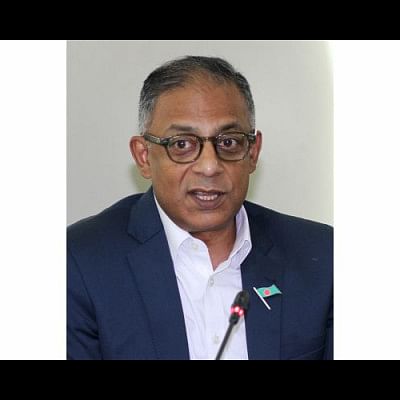
Feisal Hussain, Team Leader, Business Finance for the Poor in Bangladesh (BFP-B)
In Bangladesh the problem is not that there is a shortage of entrepreneurs. We have a large number of entrepreneurs. The problem is that they are not growing fast enough. A recent study shows that for every one taka that micro and small entrepreneurs receive, seven taka goes to medium and large businesses. We need to find ways to reduce the gap between the financing given to SMEs and big businesses. The challenge is that there is no commercial business model in the country which is viable in terms of business development services. There is a need for strong public and private partnership.
There are three areas where innovation can dramatically increase the chance for entrepreneurs: digitisation of the full business process, use of efficient technologies such as artificial intelligence and machine learning, and big data. All these things will help create transparency and efficiency and reduce cost of business.
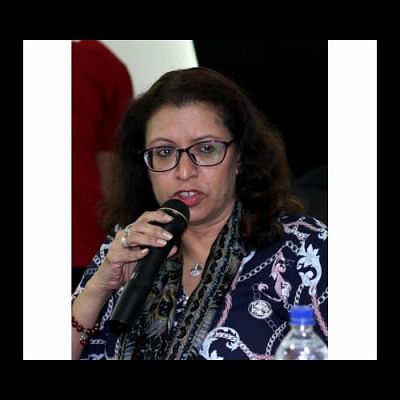
Shahamin S Zaman, CEO, CSR Centre
We see very few women in leadership roles. In our garment factories, for example, there are thousands of women working as labourers but how many of them can climb up the ladder of professional development, and reach managerial positions? There are very few women garments owners. The main challenge is women's limited access to finance which is seriously hindering their progress as entrepreneurs. Instead of maintaining a single fund we should focus on developing a model for entrepreneurs that includes incubation of business ideas and strategising gender lens at the policy level. We can follow the UN guideline, known as women empower principles (WEP), in formulating any policies regarding facilitation of women's participation in economic activities.

Ejaj Ahmad, Founder and President, Bangladesh Youth Leadership Center
It is not enough to provide young people with a great degree and money for them to pursue entrepreneurship. Their ideas need to be curated and mentored. If the local chapter of EO and other dignitaries present in today's session collaborate to build a mentoring framework for young entrepreneurs, it would be a great step forward.
With the development of technology, many jobs will be redundant. For example, many well educated young people are employed in the teller section of our banks where they have very little to contribute, and these jobs will soon be performed by machines as we see in the developed countries. Therefore, our parents need to come out of the traditional mindset and encourage their children to learn the skills of the future.

Marina Tabassum, Principal, Marina Tabassum Architects
We have been running a project for quite some time where groups of women (usually 20 women in a group) create a fund through savings for building liveable houses. We also got a grant from Asian Commission for Housing Rights for facilitating this initiative. Under this project, the community members themselves decide whose house needs to be built first and thus they plan and map the whole housing structure of the village. They get Tk 160,000 (USD 2,000) as loan from the fund for building two rooms and one bathroom. We, the architects, advise them on how to make the best use of the fund in building the structure. Through this project, 40 houses have already been built in Jhenaidah and 20 more houses will be constructed soon. This bottom-up approach creates ownership of women in places where they live and thus empower them significantly. I think, this model can also be applied in other areas of the country.

Samia Sultana, Director, Acura Trade Ltd.
Government has 69 training centres all over Bangladesh as well as sufficient funding through banks such as Probashi Kallyan Bank and Karmasangsthan Bank. Despite these available resources, we still lack skilled female expatriate workers. The women I work with mostly go to Middle Eastern markets looking for work as house-help. Five years ago, the first batch of 34 women workers from my agency went to Saudi Arabia. Within three months, all of them came back. After investigation, I found out that language barriers, as well as lack of information and skills required for performing the jobs, were the major issues.
It is a requirement for the government to teach and train every person properly for at least a month. Adequate training must include how to overcome homesickness, the required language skills, effective hygiene practices along with work-related skills. We need to be patient with these women as they are not accustomed to formal education, and therefore they might be unable to learn fast. We also need to provide training to the trainers.
In the last four years, 250,000 women went to work in Saudi Arabia. Of them, 8,000 came back after facing physical and mental abuse. These issues certainly have a detrimental effect on achieving the SDGs. The government should look into this issue seriously and take adequate measures to save women expatriate workers from such abusive practices.
There is a huge demand for female workers in other places such as Japan and North America. If we can adequately train these women on house-keeping and nursing jobs, they will be able to earn more than double the amount they usually earn.
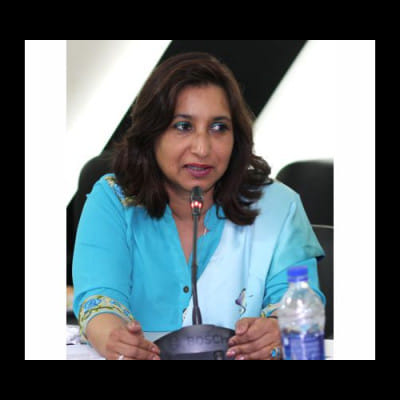
Rumesa Hussain, Associate Director, PricewaterhouseCoopers (PWC) Bangladesh
I am seeing increasing presence of Bangladeshi women in all fields including technology-driven platforms. This is a very positive sign. PWC is also trying to involve more women in its projects.

Tahsin Aman, President Elect, Entrepreneurs' Organization Bangladesh and Vice Chairman, Aman Group
Business entities have a track record of being innovative and dynamic to attain their business goals. I believe the minds of business leaders should be tapped to bring social good. Though the non-profit organisations are putting in a lot of effort to achieve the SDGs, they are still unable to obtain remarkable results, mainly because they don't implement business thinking properly. They need to invest more in marketing. Creativity is the key for any initiative to thrive. Creativity often emerges after several trial-and-error attempts. However, the NGOs cannot afford to fail repeatedly and therefore businesses need to come forward to help them in terms of undertaking creative ventures.
Talent acquisition is another concern. Businesses attract the best minds with adequate skills but the social initiatives are unfortunately unable to attract these talents. Therefore, it is important for businesses to share their ideas and strategies with the NGOs, government agencies and other players in the social space to empower them to attain the SDGs. In this regard, EO can take the lead to encourage its global business leaders to come forward and contribute towards achieving the SDGs.
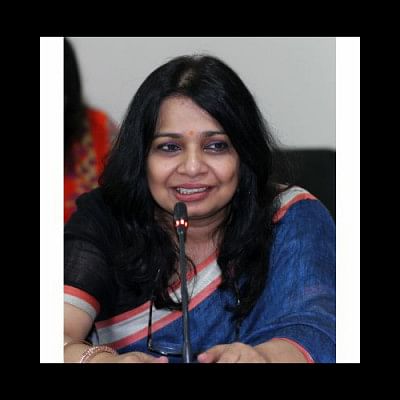
Aasha Mehreen Amin, Senior Deputy Editor, Editorial and Opinion, The Daily Star
We need to emphasise upon implementing creative funding mechanisms for women so that they can pass through different levels of entrepreneurship.
Our education system has a big role to play in creating entrepreneurship. We have a prevailing mindset that after a certain level of education, we don't need to learn. But, to ensure a progressive society, we need to keep learning and remain at pace with digitisation and technology.
After the Liberation War, a huge amount of donor funding was available for Bangladesh. Since we are currently moving towards achieving a middle-income status, this scenario is changing; donor funding or easy money is diminishing. Therefore, our businesses, particularly non-profit organisations, need to be sustainable and provide better and quality services. We also need to focus on acquiring new talent, mentoring and taking them forward.

Mantasha Ahmed, President, Association of Fashion Designers of Bangladesh (AFDB)
Through our association, we have trained 100 tailors across Bangladesh. Our next project is to train 1,000 tailors through a mobile training centre so that they don't have to come to Dhaka to obtain training.
However, all the people who obtain training are not engaged in businesses. This led us to the conclusion that more entrepreneurial initiatives are required along with training. We are considering refresher training every six months to give the trainees new skills and familiarise them with new technologies. We are also trying to implement research programmes through which we can find out about upcoming sectors and assess their demand.
It should also be noted that Bangladesh has a lot of potential in the handicrafts sector. We are working with the government to expand this sector. Through our association, we have organised many exhibitions and fairs through which we have connected weavers, artisans and handicraft producers with buyers. Increasing our exports can help these businesses further.
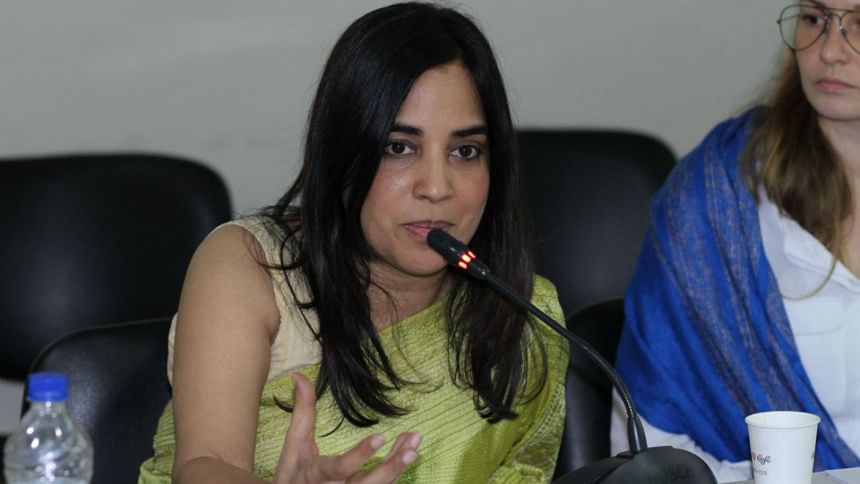
Sadaf Saaz, Managing Director, Jatrik
Women in the garments sector have obtained notable economic independence. However, since the garments industry is more mature now, a lot more can be done. For example, internal mentorship training can be provided to new and young employees to enhance their critical thinking and decision-making capabilities. It is also important for women to have a definite career path so that they can obtain senior management level positions in this sector.
The role of entrepreneurship and innovation in arts and culture is also crucial. Young children should be exposed to literature, arts and culture in schools so that they are able to think out-of-the-box and develop their critical and lateral thinking abilities. Communities can therefore connect better through arts and culture, especially in the era of social media which tends to disconnect people.
Since we are developing as a nation and have better available resources, we need better utilisation of big data and technology in areas such as public health and biotechnology. To achieve these objectives, we can encourage young minds, particularly those who pursue higher studies abroad, to help solve our country's problems.

Nusrat Aman, Chief Patron, Ayat Education
Many women sacrifice their education and career opportunities to take care of their families, particularly ailing family members. We need to engage people, particularly the youth, in open conversations, to make them aware that women don't have the sole responsibility of taking care of families; it should be shared by both men and women.
We should take into account that women working in the garments industry are major contributors to the economy. Yet, several studies reveal that there is no career progression for them. Moreover, they leave those jobs by the age of 30 to take care of their families. To solve these issues, we need to have better communication and collaboration between sectors.
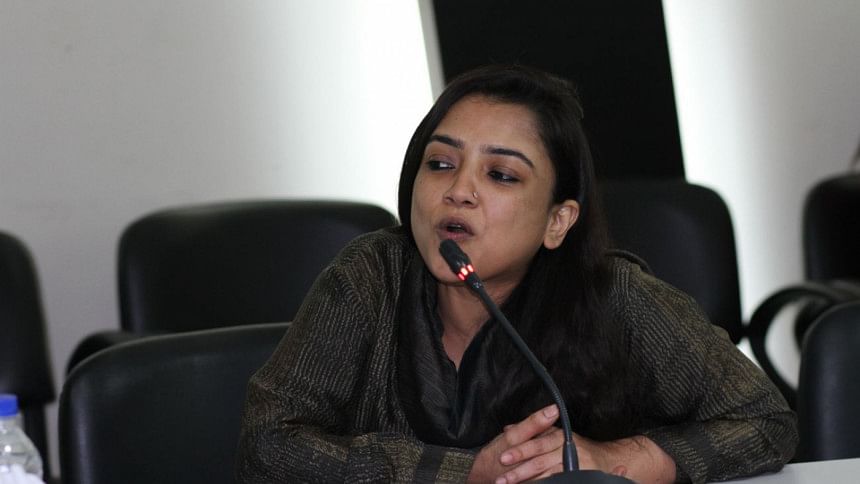
Nobonita Chowdhury, Editor, DBC News
There is a prevailing notion that women should only work if there is an emergency in the family, in terms of financial crisis, etc. This perception needs to change. Society also tends to view the private sector and the government's initiatives towards women as an act of Corporate Social Responsibility (CSR). We need to understand that empowering women is an investment and not CSR. We need to view women's work as a necessity rather than as an option.
We should consider women's unemployment as a significant part of our country's unemployment scenario. Our policies need to be geared towards addressing this challenge.
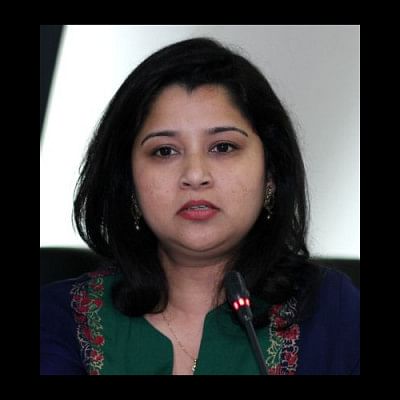
Zareen Mahmud Hosein, Founder, HerStory Foundation
Two barriers for achieving the SDGs through entrepreneurship and innovation are lack of quality education and adequate skills. Quality education is a long-term aspect where we should invest now to reap optimal benefits in the future whereas we can focus on developing skills among the youth now to obtain immediate results.
We tend to avoid risks associated with entrepreneurship and we don't choose non-traditional forms of education to enhance our skills. Moreover, a lack of awareness prevails as people don't have sufficient information on the availability of resources for skills development. Consequently, a lot of our resources are wasted. Even when people have information and resources, they don't utilise them as they prefer comfortable desk jobs, to avoid taking risks and also to avoid going into the technical field. However, it should be noted that the technical field offers better employment opportunities. To resolve these issues, TVET institutions can offer people certifications and diploma-level degrees which can help them become entrepreneurs or help them secure jobs, particularly in the manufacturing sector.
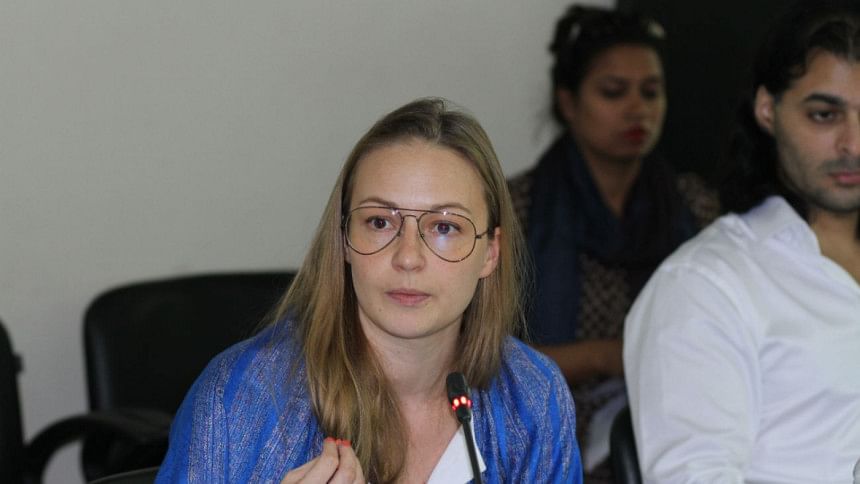
Jenni Risku, Founder, Women in Tech Asia
Young people need to enhance their critical thinking skills in order to undertake entrepreneurship. Problem-solving is an effective teaching method for critical thinking skills development, which can be implemented in educational institutions.
A study done in the US by Crunchbase on venture capital funds found the number of female partners associated with decision-making in venture capital firms. It also researched how many venture capital funds had invested in female-led companies because one of the major problems with startups is that female-led companies get less than 10 percent of the available venture capital funds. Unfortunately, since the number of companies led by females was so low, it was very difficult to find a statistical correlation between cause and effect. I believe such a study should be done in Asia as well. Such a situation calls for more emphasis on female leadership and equity ownership. We need more women role models in the innovation ecosystem to undertake leadership roles and build companies.
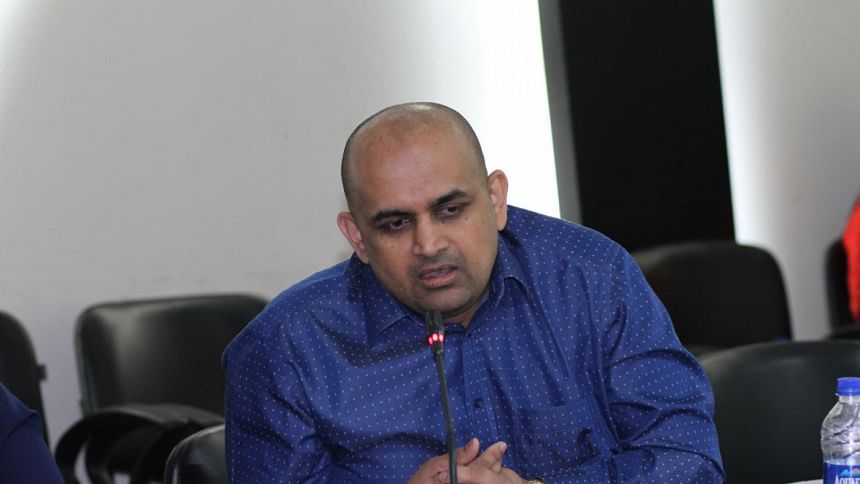
We can also build an independent ecosystem which is led and managed by students where students create their own companies, take all decisions with the help of an appointed board of directors and mentors and have student funds available to run those companies.
Mike Kazi, CEO, Kazi IT
We have a tendency to blame the education system in Bangladesh. We don't focus on self-learning, though a lot of self-learning materials are available online. Our families also tend to prefer only certain types of career options such as bank jobs, government jobs or merely settling abroad. We need to consider staying in Bangladesh and building a career here.
We need to promote the IT sector more to create employment opportunities as well as obtain the objectives of Digital Bangladesh. Creating more education opportunities and job facilities for women is also required. It is noteworthy that in many organisations, female employees are outperforming their male colleagues.

Omar Bhai, EDC, Olympic Industries and Mentorship Chair, Entrepreneurs' Organization Bangladesh
Bangladesh has made great progress in terms of the types of institutions and corporations it has established in a short period of time. However, there is a gap in entrepreneurship and innovation, in terms of sustainable development. A lot of innovation is occurring at the grassroots level but they are not reaching the mass market. People who are innovating beneficial products are lacking investments and appropriate technology for expansion. We need to provide platforms to aspiring entrepreneurs, particularly to the youth and women, regardless of their age, to encourage them.
Providing funds and platforms for practical distribution is essential. Entrepreneurs need to identify the projects that are impactful and doable, besides being profitable, to make a significant difference. Bridging the gap takes time and therefore we need to ensure that products reach the mass market at the right time.

 For all latest news, follow The Daily Star's Google News channel.
For all latest news, follow The Daily Star's Google News channel. 








Comments